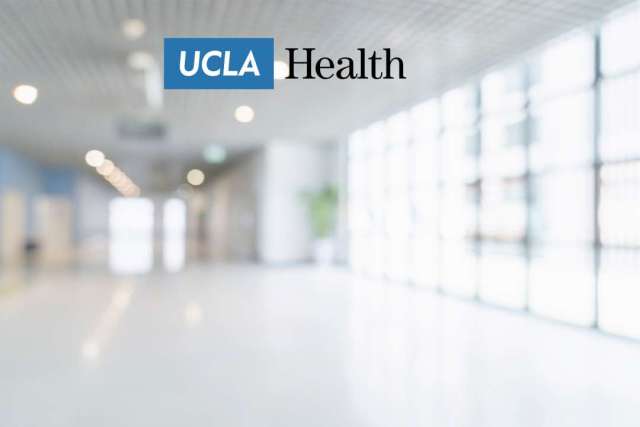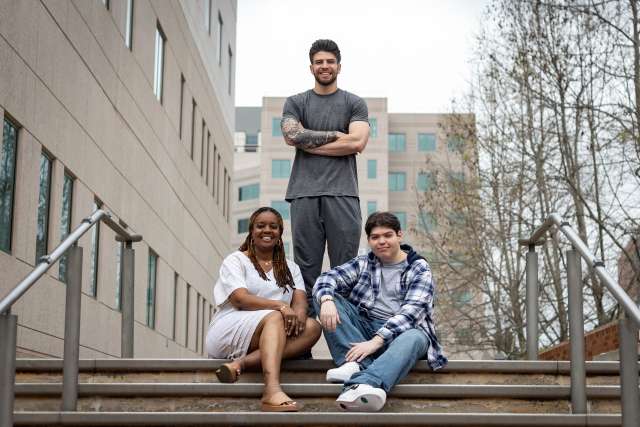For Jim Easton, a UCLA alumnus and longtime benefactor of the university, his $10 million donation to the Alzheimer's Disease Center at UCLA's Department of Neurology is truly a gift from the heart. It honors his mother, who died from the disease.
"My mother lived a long and productive life that ended in a devastating way," Easton said. "She was involved in the beginning of my father's small sporting goods manufacturing business and continued to work in the administrative and financial areas until the effects of Alzheimer's caused her to retire.
"I hope my gift, along with donations from many others, will help make it possible for the talented scientists and physicians at UCLA to develop a cure and eventually prevent Alzheimer's disease," he said.
In recognition of Easton's generosity, the center has been renamed the Mary S. Easton Center for Alzheimer's Disease Research. Easton's $10-million gift will support research by the newly established Jim Easton Consortium for Alzheimer's Drug Discovery and Biomarker Development, the principal research vehicle of the Easton Center.
A 1959 graduate of UCLA, Easton is chairman and chief executive officer of Jas. D. Easton Inc., a privately owned manufacturer of sports equipment, with headquarters in Van Nuys, Calif. He is a member of the U.S. Olympic Committee and the International Olympic Committee, for which he served as vice president from 2002 to 2006.
Easton has given generously to other areas at UCLA, including Intercollegiate Athletics, the Henry Samueli School of Engineering and Applied Science, and the Anderson School of Management.
Five inaugural projects have been chosen for support through the Easton Consortium. They reflect the most promising investigations in Alzheimer's disease conducted by UCLA's dedicated physicians and scientists. They include:
- Investigation of the molecular structure of the toxic protein that accumulates in the brain in Alzheimer's disease.
- Studies of the molecular interactions that make the protein involved in Alzheimer's toxic.
- Characterization of and intervention for Alzheimer's in genetically engineered mouse models.
- Studies involving familial Alzheimer's patients.
- Genetic studies and serial imaging of patients with Alzheimer's.
"I am truly grateful for Jim's commitment to accelerating leading-edge research to develop new treatment approaches and prevention strategies for Alzheimer's disease," said Dr. Jeffrey Cummings, UCLA professor of neurology and director of the Easton Center.
Founded in 1991, UCLA's Alzheimer's research center conducts research and provides care relevant to normal aging, mild cognitive impairment, Alzheimer's disease and other causes of late-onset cognitive decline.
A formal dedication ceremony for the Easton Center will take place this fall.
The Mary S. Easton Center for Alzheimer's Disease Research is part of the UCLA Department of Neurology, which encompasses more than a dozen research, clinical and teaching programs. These programs cover brain mapping and neuroimaging, movement disorders, Alzheimer's disease and other dementias, multiple sclerosis, neurogenetics, nerve and muscle disorders, epilepsy, neuro-oncology, neurotology, neuropsychology, headaches and migraines, neurorehabilitation, and neurovascular disorders. The department ranked No. 1 in 2005 and 2006 among its peers nationwide in National Institutes of Health funding. For more information, visit http://neurology.medsch.ucla.edu/.



